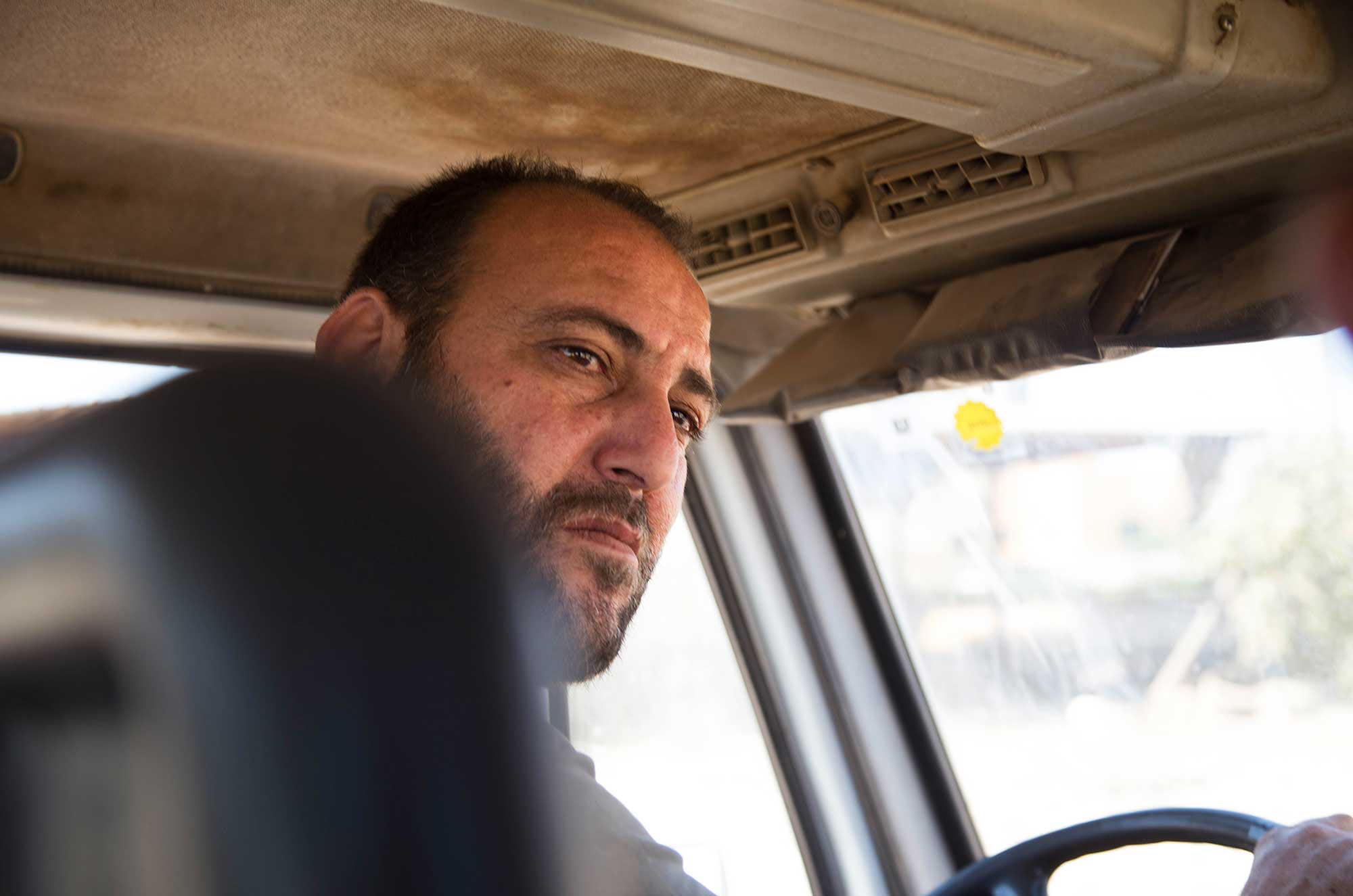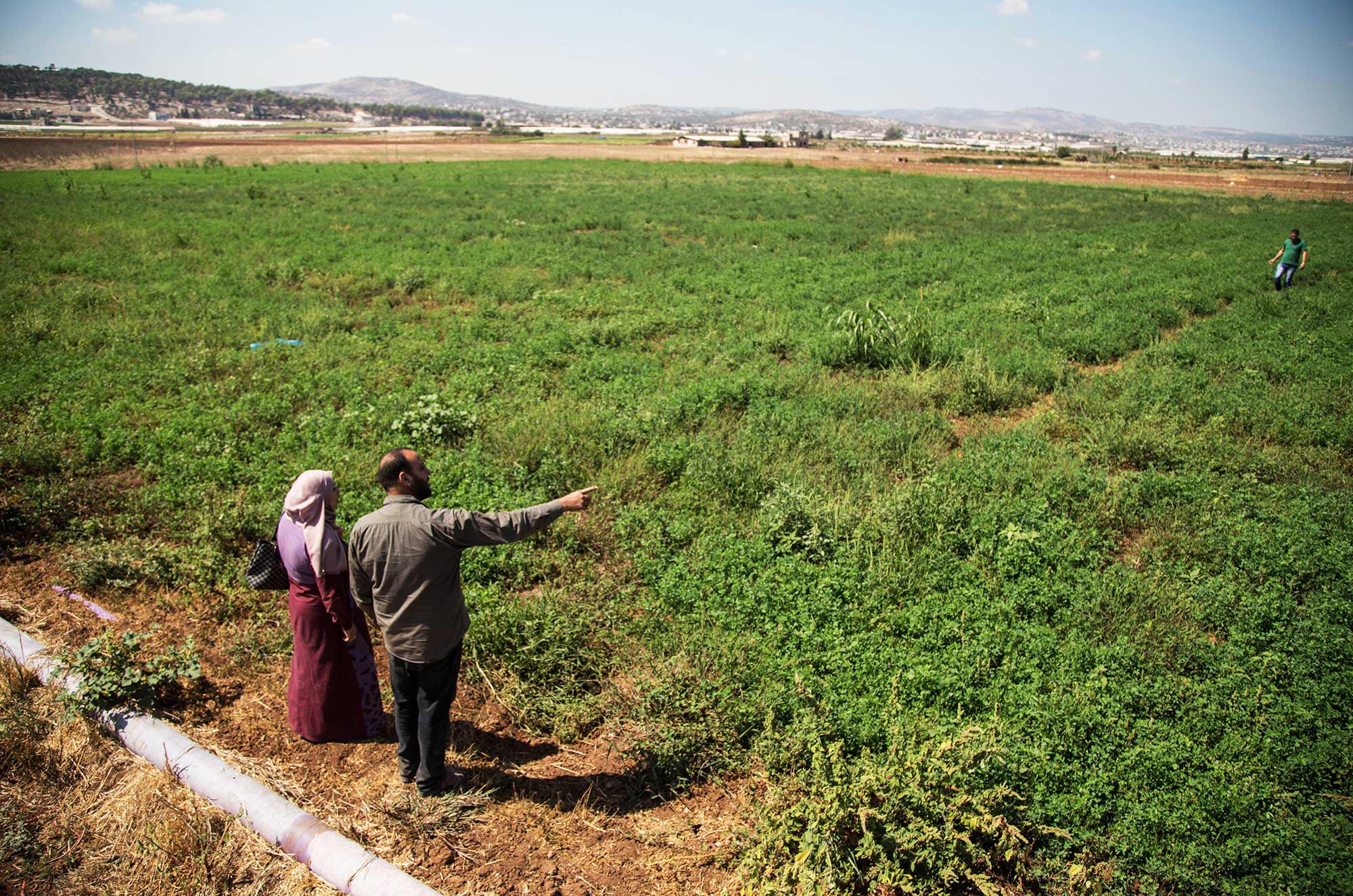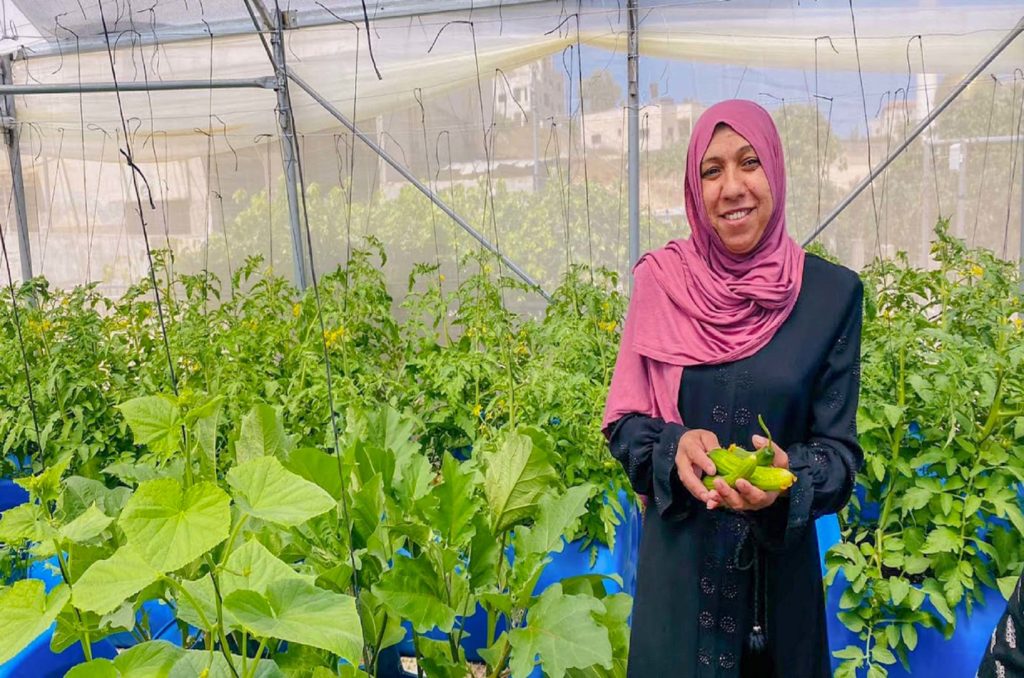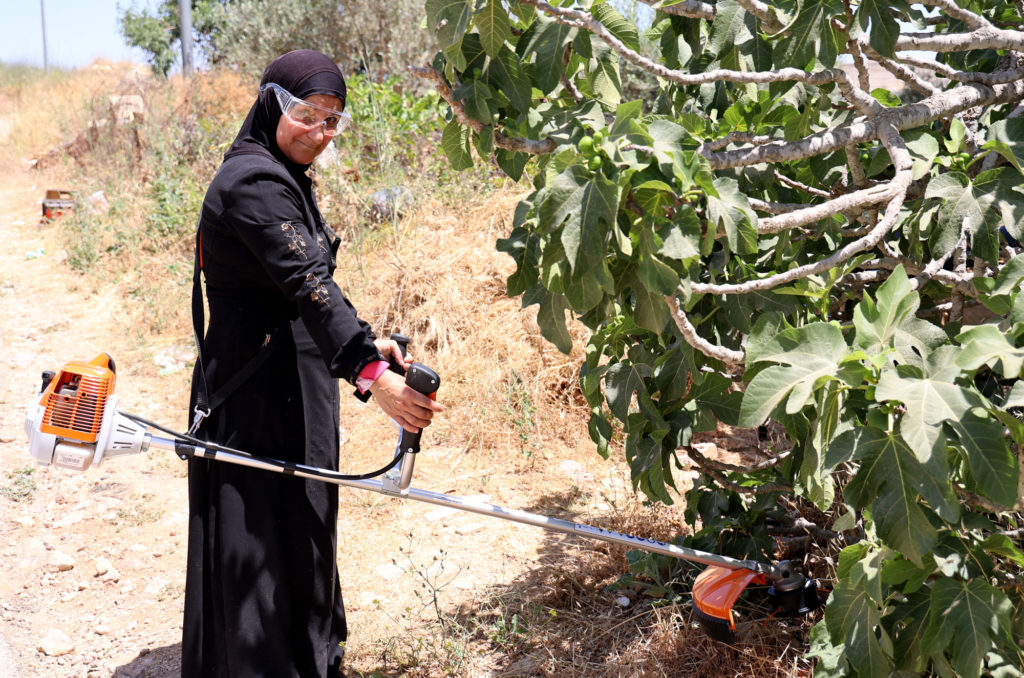Sep, 2016
Anyone who travels to the northern West Bank cannot help but notice the patchwork fields of vibrant green interspersed with dry swathes of land.
There is a scarcity of water in the area and only farmers who have the funds to pay for irrigation can grow lush rows of crops. The others do what they can with limited water and financial resources.
To help these struggling farmers, Anera’s Jenin Water Reuse Project addresses the Palestine water crisis.


“We couldn’t maintain our 12 acres of land. This project is the only solution for us to survive as farmers,” said Ashraf, a local farmer.
“We started noticing a decrease in the amount of water around 15 years ago, and it’s still getting worse as each day passes,” said Ashraf Al-Sa’adi, a local farmer. Ashraf and his three brothers are new participants in the Palestine water project, having joined just two months ago. For 27 years, Ashraf’s family has grown tomatoes, eggplants, cucumbers, bell peppers and other crops. Now, out of his 12 acres, he primarily farms on 1.5 acres of land irrigated with treated wastewater.


Farmers used to rely on surface wells to irrigate their crops. However due to the severe shortage of water in Palestine, the Sa’adi family cannot depend on surface wells to grow their crops anymore.
Recycled Wastewater Makes the Most of Limited Resources
The Jenin Water Reuse Project treats wastewater so it can be reused as irrigation for fodder crops such as alfalfa and millet, and fruit trees like pomegranate, pecan and date palms. The project relies on sub-surface drip irrigation, which saves farmers time and effort they’d otherwise spend assembling and moving around water hoses. It also ensures that crops get exactly how much water they need, avoiding unnecessary water consumption.
Ashraf is a 40-year-old father of four sons and a daughter, ranging from age 12 to just a year old. This project is his only hope for sustaining a good income to provide for his young family and send them to school. Someday, he hopes that his children will inherit the farm and work the land.
“I am hoping that through this project we will be able to bring life back to the land,” said Ashraf. “When one farms, he farms for his children and not for himself.”


Alfalfa Yields High Returns for Palestinian Farmers
Recently, the Al-Sa’adis harvested their alfalfa for the first time, collecting 250 bales (around 5.5 tons). They sold their first harvest at about $3 per bale. After just 20 days, they will harvest alfalfa and millet for the second time and can sell it an even higher price of $5 per bale. Alfalfa contains fewer weeds after the first harvest, which makes it more valuable.
Alfalfa is cultivated as fodder for livestock, which is helpful for the Al-Sa’adi family because they have many animals. Their family barn shelters 45 chickens, 30 sheep, seven goats and four calves. Since alfalfa is harvested every 20-25 days, Ashraf now has plenty of fodder for his animals. This saves him a significant amount of money because animal feed is expensive. The Al-Sa’adis used to spend hundreds of dollars each month to feed their cows, but the alfalfa crops provide them with all the fodder they need as well as a surplus for selling.
Now that Ashraf can save money on fodder, he plans to use the profit to buy more animals and start producing milk and cheese. Known as “the king of fodder,” alfalfa is a great source of protein, with three times more than the amount of protein in wheat straw. Feeding this green plant to cattle and sheep helps produce high quality dairy products.
After sharing a cup of coffee and the latest updates at the Al-Sa’adi farm, Ashraf took a ride in his truck to see his fields of alfalfa and millet. The crops cover the soil like a green carpet, creating a beautiful view from afar.


